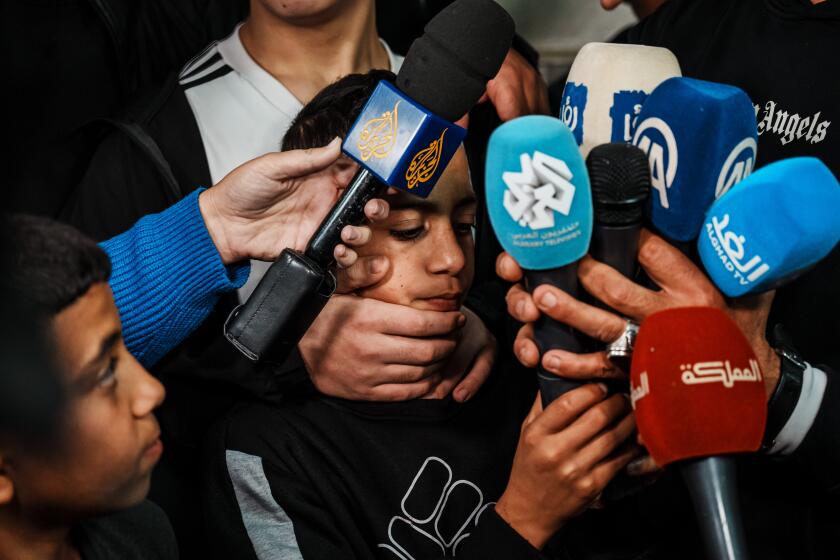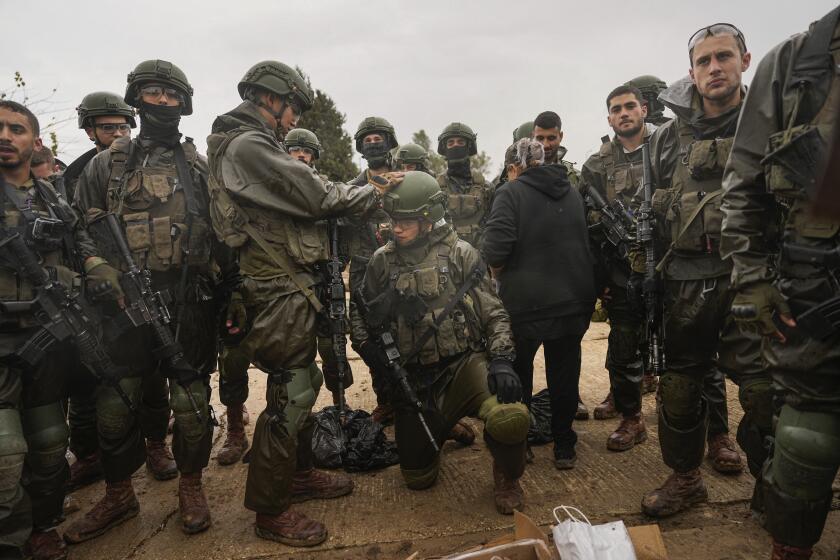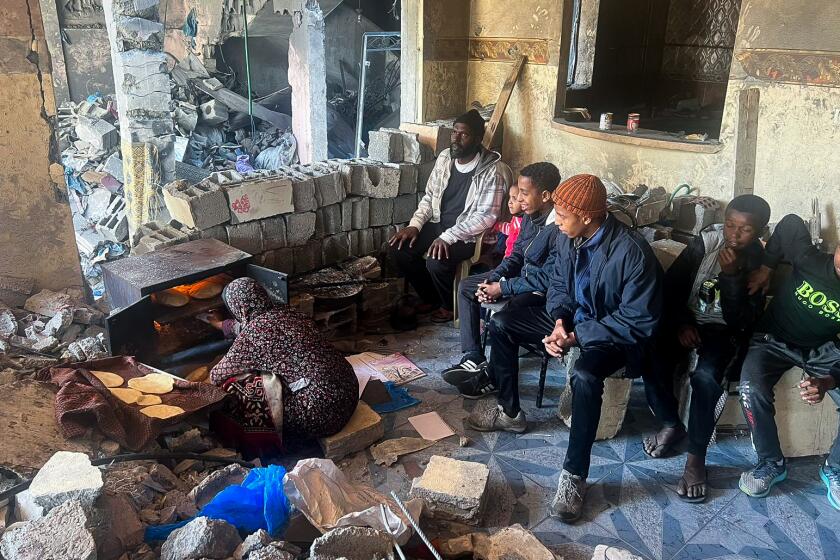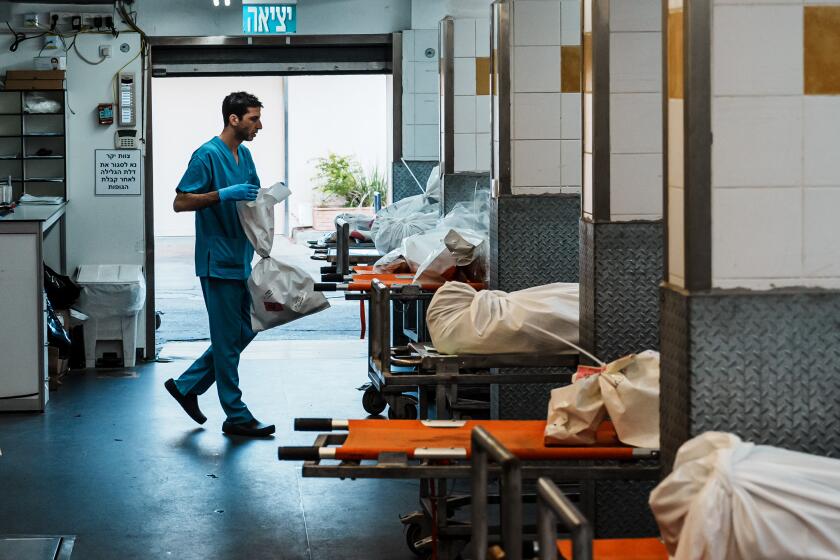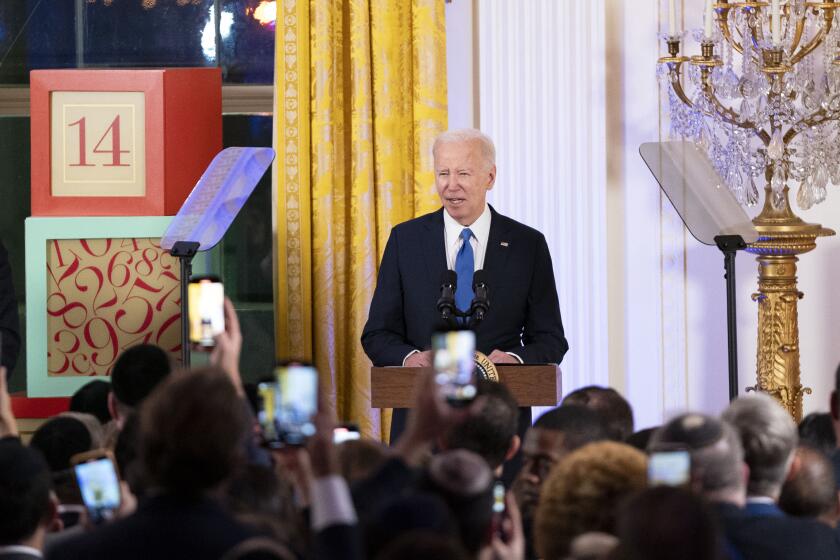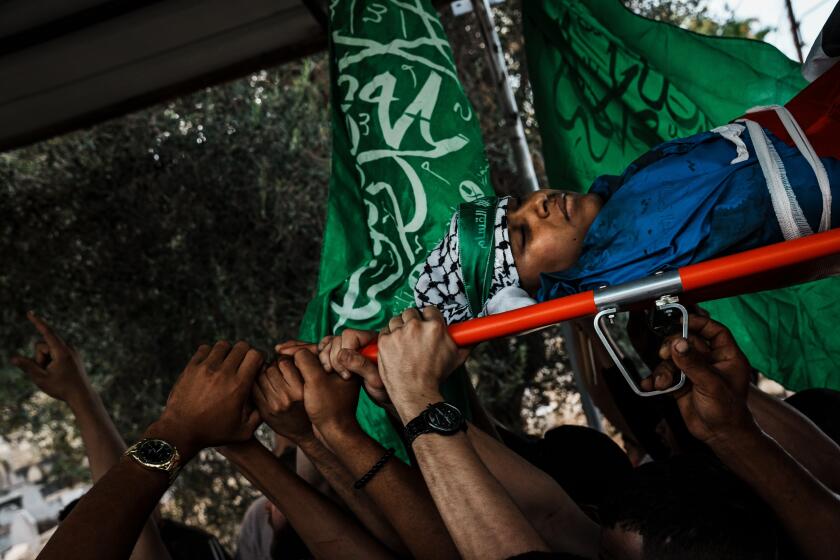U.S. envoys work for new hostage release deal, scale-down of Israel-Hamas war
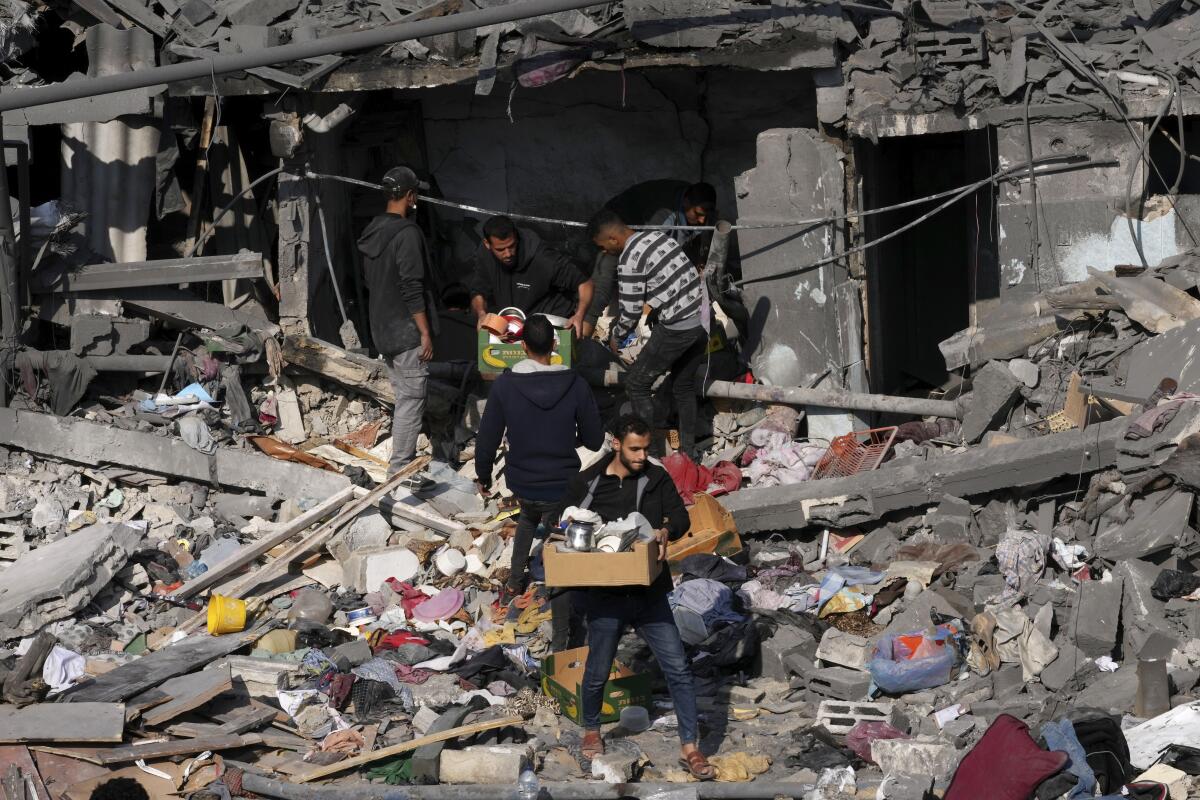
TEL AVIV â The head of the CIA jetted to Europe for talks with Israeli and Qatari officials Monday, sounding out the potential for a deal on a new cease-fire and the release of hostages in Gaza, as the U.S. Defense secretary spoke to Israeli military leaders about scaling back major combat operations against Hamas.
Still, there was no sign that a shift in the war was imminent after more than two months of devastating bombardment and fighting. Fierce battles raged in northern Gaza, where residents said rescue workers were searching for the dead and the living under buildings flattened by Israeli strikes.
Pressure is growing, as France, the U.K. and Germany â some of Israelâs closest allies â joined global calls for a cease-fire over the weekend, and Israeli protesters have demanded the government relaunch talks with Hamas on releasing more hostages after three were mistakenly killed by Israeli troops while waving a white flag.
U.S. officials have repeatedly expressed concern about the large number of civilian deaths in Gaza. But after talks with Israeli officials Monday, U.S. Defense Secretary Lloyd J. Austin III said, âThis is Israelâs operation. Iâm not here to dictate timelines or terms.â The U.S. has vetoed calls for a cease-fire at the U.N. and has rushed munitions to Israel.
Prime Minister Benjamin Netanyahu has insisted that Israel will keep fighting until it removes Hamas from power, crushes its military capabilities and frees the dozens of hostages still held in Gaza since the deadly Oct. 7 attack inside Israel that killed some 1,200 people, according to the Israeli government.
The 10-week-old war has killed more than 19,000 Palestinians and transformed much of the north into a moonscape. Some 1.9 million Palestinians â nearly 85% of Gazaâs population â have fled their homes, with most packing into U.N.-run shelters and tent camps in the southern part of the besieged territory.
Hostage talks
In an apparent sign that talks on a hostage deal were growing more serious, CIA Director William Burns met in Warsaw with the head of Israelâs Mossad intelligence agency and the prime minister of Qatar, a U.S. official said.
It was the first known meeting of the three since the end of a weeklong cease-fire in late November, during which some 100 hostages â including a number of foreign nationals â were freed in exchange for the release of around 240 Palestinians held in Israeli prisons.
The recent hostage-for-prisoner swaps between Hamas and Israel have focused attention on the number of Palestinian minors imprisoned by Israel.
National Security Council spokesman John Kirby said the talks were not âat a point where another deal is imminent. We are working literally every day on this.â
Aiming to increase public pressure on the Israeli government, Hamas released a video showing three elderly Israeli hostages, sitting in white T-shirts and pleading for Israel to bring their immediate release.
The comments were likely made under duress, but the video signaled Hamas wants to move on to discussions of releasing sick and elderly men in captivity. Israel has said it wants around 19 women and two children freed first. Hamas says the women include soldiers, for whom it is expected to demand a higher price in terms of prisoner releases.
Hamas and other militants are still holding an estimated 129 captives. Hamas has said no more hostages will be released until the war ends.
Scaling down the war
Austin, who arrived in Israel with Joint Chiefs Chairman Gen. Charles Q. Brown, said he and Israeli officials exchanged âthoughts on how to transition from high intensity operationsâ and how to increase the flow of humanitarian aid to Gaza.
After Hamasâ attack, the U.S. pledged full support for Israel. Now, as the death toll in Gaza skyrockets, President Biden is trying to rein in Netanyahu.
American officials have called for targeted operations aimed at killing Hamas leaders, destroying tunnels and rescuing hostages. Those calls came after President Biden warned that Israel is losing international support because of its âindiscriminate bombing.â
Speaking alongside Austin, Israeli Defense Minister Yoav Gallant said only that âthe war will take time.â Last week, Gallant said Israel would continue major combat operations for several more months.
Israeli military spokesman Daniel Hagari said the Israeli chief of staff met with Austin and Brown and presented âplans for the continuation of the battle in the coming stages.â
European countries also appear to be losing patience. âFar too many civilians have been killed in Gaza,â European Union foreign policy chief Josep Borrell posted on X. âCertainly, we are witnessing an appalling lack of distinction in Israelâs military operation in Gaza.â
Under U.S. pressure, Israel provided more precise evacuation instructions earlier this month as troops moved into the southern city of Khan Yunis, though Palestinians say nowhere in Gaza is safe as Israel continues to carry out strikes in all parts of the territory.
âI just donât know where weâll go.â Itâs a question Palestinians ask over and over in Gaza as Israel ramps up bombardment after Hamas truce collapsed.
Israel reopened its main cargo crossing with Gaza to allow more aid in â also after a request from the U.S. But the amount is less than half of prewar imports, even as needs have soared and fighting hinders delivery in many areas.
Israel, which already had a long blockade of Gaza, shut down entry off all goods into the territory soon after the war started and weeks later began allowing a small amount of aid in through Egypt.
Human Rights Watch on Monday accused Israel of deliberately starving Gazaâs population â which would be a war crime â pointing to statements by senior Israeli officials expressing the intent to deprive civilians of food, water and fuel or linking the entry of aid to the release of hostages.
This moment in the Israel-Hamas saga can be glimpsed in the fate of two fathers, strangers who share misfortunes brought on by larger powers and are now left to find their way
At least 110 people were killed in Israeli strikes Sunday on residential buildings in the urban Jabaliya refugee camp in northern Gaza, Munir Boursh, a senior Health Ministry official, told Al Jazeera television.
Fierce fighting continued Monday in Jabaliya and the Gaza City districts of Zaytoun and Shijaiyah, where tens of thousands of Palestinians remain trapped, crowded in homes or schools.
In Jabaliya, first responders and residents searched the rubble of many collapsed buildings. âThey use their hands and shovels,â said Amal Radwan, who is staying at a U.N. shelter there. âWe need bulldozers and above all the bombing to stop.â
A forensic investigator in Tel Aviv works to reassemble remains of victims of Hamas militants, trying to understand the causes of death and the underlying cruelty.
More than 19,400 Palestinians have been killed, according to the Health Ministry, which has said most are women and minors, and that thousands more are buried under the rubble of destroyed buildings. The ministry, which is run by Hamas, does not differentiate between civilian and combatant deaths.
Israelâs military says 127 of its soldiers have been killed in the Gaza ground offensive. It says it has killed thousands of militants, without providing evidence.
Israel blames civilian deaths on Hamas, saying it uses noncombatants as human shields. But the military rarely comments on individual strikes.
Israel and the U.S. on Tuesday had their sharpest public disagreement yet over the conduct and future of Israelâs war in the Gaza Strip against Hamas militants.
Violence surges in the West Bank as Israel increases raids to root out militants. Palestinians say the military is using the war as an excuse to crack down.
Israel and Lebanonâs Hezbollah have traded fire along the border nearly every day since the war began. In the Israeli-occupied West Bank, over 300 Palestinians have been killed since the start of the war, including four overnight during an Israeli military raid in the Fara refugee camp, according to the Palestinian Authority Health Ministry.
This has been the deadliest year for Palestinians in the West Bank since 2005. Most have been killed during military raids, which often ignite gun battles, or during violent demonstrations.
More to Read
Sign up for Essential California
The most important California stories and recommendations in your inbox every morning.
You may occasionally receive promotional content from the Los Angeles Times.
